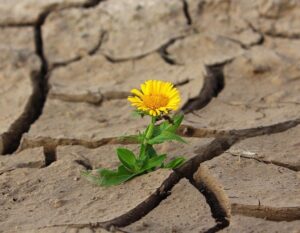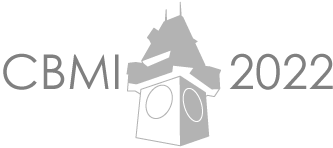CBMI 2022
Special Session MSPND: Multimodal Signal processing technologies for Protecting people and environment against Natural Disasters
19th International Conference on Content-based Multimedia Indexing
Over the recent years and especially since 2016, with the success of Paris Climate Change Agreement, there has been a revitalised and stimulated awareness on climate change. The evidence gathered from 2021, on the unprecedented number of natural disasters crisis across southern Europe has further re-emphasised the need to undertake further actions in combating the environmentally sustainability. The number of deaths from natural disasters can be highly variable from year-to-year; some years pass with very few deaths before a large disaster event claims many lives. Over the past decade on an average, approximately 60,000 people have globally died from natural disasters each year. This represents 0.1% of global deaths. The increase in the frequency of natural disasters ranging from earthquakes, floods, hurricanes, and wildfires, among others like volcanic eruptions are posing a real threat to the livelihood of many citizens. Addressing these challenges needs a concerted effort to undertake research activities considering the global macro scale analysis complemented with on-ground technologies deployed for monitoring the causes and sources of natural disaster
Despite several efforts being carried out among the disaster resilience community, there remains a lack of concerted effort in bringing together interdisciplinary experts to address the problem of early-stage warning of natural disasters. Additionally, there is also a critical need to develop technologies that could save lives following the impact of natural disasters. Therefore, the objective of the special session is to bring together leading contributions focussed on the scientific innovations in the field of multi-modal signal processing technologies that can facilitate protection of people and environment against natural disasters. Such contributions could range from the use of advances in the field of sensor technologies, computer vision technologies, earth observation data analytics, and climate and weather data services among others.
Topics include (but not limited to)
- Earth observation data analysis for climate change insights
- Social media analysis for the detection and response coordination for natural disasters
- Computer vision technologies for automated detection of natural disasters
- Multispectral and hyperspectral imaging studies for rescue management
- Analysis of UAV footage for aerial surveillance of affected regions of natural disasters
- GIS visualisation toolkit to map visual concepts related to natural disasters
- Risk assessment methodologies for regions that could be affected by natural disasters
- Rehabilitation impact assessment of natural disasters for community and environment revival

Paper submission
Authors are encouraged to submit previously unpublished research papers related to the topics of each accepted special session. Authors are invited to submit full length 6 pages (to be presented as oral presentation). The submissions are peer reviewed in a single blind process. The language of the conference is English.
Important Dates
- Paper submission deadline: May 9, 2022
- Notification of acceptance: May 29, 2022
- Submission of camera-ready papers: June 19, 2022
- Conference: September 14-16 2022
Organising Team
- Krishna Chandramouli, Venaka Treleaf GbR Dr. Krishna Chandramouli, PhD (Lon), PhD (Lon), M. Tech, B. E, MIET, is a technical director at Venaka Treleaf GbR and has more than 15 years of research experience in the field of computer vision technologies. He holds dual PhD degrees from University of London in 2009 with specialization in Semantic Video Analytics and in 2019 on the interoperability of metadata models. He is a recognized expert in the use of video processing for semantic analysis of multimedia content. His expertise on Big Data Analytics has been gathered over many years of participation in several international benchmarking activities that are related to Media standardisation as MPEG. Dr. Chandramouli has executed several key projects in the domain of knowledge representation for geospatial content analysis, media transmission and forensic security for big-data platform. Dr. Chandramouli is also a member of MPEG ad-hoc group for Media Orchestration (MORE) and is an active contributor to MPEG-21 smart contract standards development. He is also a recognised subject expert at British Standards international (BSI) for Systems and contributes towards standards development. He has published more than 50 papers in highly reputed peer-reviewed conferences, journals, books with IEEE, ACM and Springer. He is a member of IET, IEEE, IEEE Computer Society, ACM and ONF. He has also organised special sessions in CBMI 2017, ICMR 2018 and was a guest editor of Large-scale multimedia signal processing for security and digital forensics special issue with Multimedia Tools and Application (MTAP) journal published by Springer. His current research interests include machine learning, big data video analytics, media engineering, time series analysis, information science and knowledge modelling for surveillance applications.
- Konstantinos Avgerinakis, Catalink Limited Dr. Konstantinos Avgerinakis received his Diploma degree in computer and telecommunication engineering from the University of Thessaly in 2009, an MBA from University of Nicosia in 2022, and a Ph.D. degree in Electrical Engineering from the University of Surrey in 2015. He is the head of the research and development in the computer vision and deep learning department with Catalink Ltd since 2019. His current research interests include computer vision and statistical video processing for crisis event detection and human activity recognition and image retrieval. Konstantinos Avgerinakis served as a technical manager of H2020 ICT V4Design and deputy technical manager in H2020 ICT MindSpaces, while he participated in many other European projects. He co-authored more than 50 publications in refereed journals and international conferences, while he has also served as a reviewer in H2020 FET proposals, international journals, and conferences.
- Philippe Besson, Pompiers de l’urgence internationale Ltc. Philippe BESSON: Lieutenant-colonel (ER), professional officer in the French Fire and Rescue service of Haute-Vienne in Limoges, Chevalier of the Legion of Honor, founding chairman and operation focal point of the organization POMPIERS DE L’URGENCE INTERNATIONALE; Urban Search and Rescue INSARAG USAR Medium team leader. Rescue and fire – disaster preparedness – technological risks specialist – investigator for fire origin, member of the classifiers team for INSARAG. 2015: Operation focal point for earth-quake in Nepal, Rescue team leader for explosion manufacture AZF in Toulouse (France) 2012-2015: Training for the CERT in Tadjikistan for AKDN 2008-2011: Official report after analysis of national risks in Kosovo for Department of Emergency Management with French Embassy and Minister of Internal Affairs in Pristina Proposals of several measures to strengthen the presence of the Fire Brigade in Kosovo Pro-gram/Project implementation: 2015-2020: Project with the fire service with the province of Guian/Samar 2008-2010: Project to create the first Fire Department in Diego Suarez (Madagascar) 2005-2007: Support of the Fire Department in Pozega and Cacak (Serbia) with training, equipment, trucks and the first school for young firefighters 2015: reclassification INSARAG as USAR Medium team – Operation focal point 2013: team leader of the rescue team INSARAG PUI FRA01 for the typhoon Haiyan in Philippines 2012: structure assessment for the UNDAC team in Brazzaville after explosion 2010: Classification as USAR Medium team by INSARAG2009: Team leader for the rescue operation in Padang (earthquake November 2009) 2007: Earthquake preparedness program and training – Seismic risk in North Pakistan 2005: Earthquake prepared-ness program and training for schools in Istanbul /Turkey 2006: Rescue team leader in Java for earthquake 2005: Team leader for rescue operation in Pakistan (earthquake October 2005) 2004: Leader of the first team for rescue operation to the tsunami in Indonesia 2003: Inventor of the earthquake simulator – Team leader for rescue operation to the earthquake in Boumerdes (Algeria) 2002: Training of the civil protection teams in Izmit (Turkey)
- Iosif Vourvachis, Hellenic Rescue Team Mr. Iosif Vourvachis (male) is a Civil Engineer with an MSc equivalent degree from the Aristotle University of Thessaloniki and an M.B.A. at Panepistimion Makedonias (University of Macedonia, Greece, in 2004). He has a long experience in managing EU projects and has participated in many FP7 and other EU funded projects as a team leader or project manager. He has coordinated WPs and Tasks in various projects. He also leads HRT R&D team in all their project related tasks as well as the financial management of the projects. Currently, he holds the position of Director of Development & EU Projects in HRT and act as HRT’s lead project manager in all HRT’s projects.
- Dr. Ilias Gialampoukidis, Information Technologies Institute Centre of Research & Technology – Hellas Dr. Ilias Gialampoukidis received the Bachelor degree in Mathematics and the M.Sc. in Statistics and Modelling from the Aristotle University of Thessaloniki, where he also received a PhD degree in Mathematics, with a special interest in applied mathematics, time series analysis, stochastic modelling, and network analytics. Dr. Ilias Gialampoukidis is a senior postdoctoral researcher at Centre for Research and Technology Hellas at Information Technologies Institute, with extensive experience in EC-funded research projects through work package leaderships, deputy project coordination, and critical roles in several projects. His research interests involve multimodal information retrieval, Big Data analytics, multimodal fusion, supervised (deep) and unsupervised learning, and social media mining and network analytics. He has co-authored more than 55 publications in international journals and conferences. He has served as a special session organiser at the International Conference on Multimedia Modelling (MMM) and IEEE Image, Video, and Multidimensional Signal Processing Workshop (IVMSP).
- Dr. Stefanos Vrochidis, Information Technologies Institute Centre of Research & Technology – Hellas Dr. Stefanos Vrochidis received the Diploma degree in Electrical Engineering from Aristotle University of Thessaloniki, Greece, the MSc degree in Radio Frequency Communication Systems from University of Southampton and the PhD degree in Electronic Engineering from Queen Mary University of London. Currently, he is a Senior Researcher (Grade C) with CERTH-ITI at the Multimedia Knowledge and Social Media analytics Lab and the head of Multimodal Data Fusion and Analytics Group. His research interests include multimedia analysis and retrieval, web and social media mining, multimodal fusion, multimodal analytics, decision support, as well as environmental and security applications. Dr. Vrochidis has participated in many European and National projects dealing with the application of web data mining, computer vision and multimodal analytics in many domains including health, security, robotics and digital twins. Stefanos Vrochidis has been the Project Coordinator and the Scientific/Technical Manager of more than 20 European and National projects. He has also participated as WP and task leader in many other European and National projects and co-authored more than 220 related journal and conference publications. Stefanos Vrochidis has been among the organisers of Environmental Multimedia Retrieval 2014 (EMR), EMR 2015 and Multimedia Analysis for Multimodal Interaction (MARMI) 2016 workshops held in ICMR 2014, 2015 and 2016 respectively. He was among the organizers of three special sessions on “Multimedia and Multimodal Interaction for Health and Basic Care Applications” in MMM 2017, on “Multimedia and Multimodal Analytics in the Medical Domain and Pervasive Environments” (MULTIMED 2020 and 2021) in MMM 2020 and MMM2021 and on “Multimodal Analysis and Retrieval of satellite images” in MMM 2021. He has served as a reviewer in international Journals such as Multimedia Tools and Applications, IEEE Transactions on Multimedia and as Technical program committee in well reputed conferences and workshops such as ICMR, ACM Multimedia, ICME, ECIR and ICIP.
This project has received funding from the European Union’s Horizon 2020 research and innovation programme under grant agreement no. 101037247
